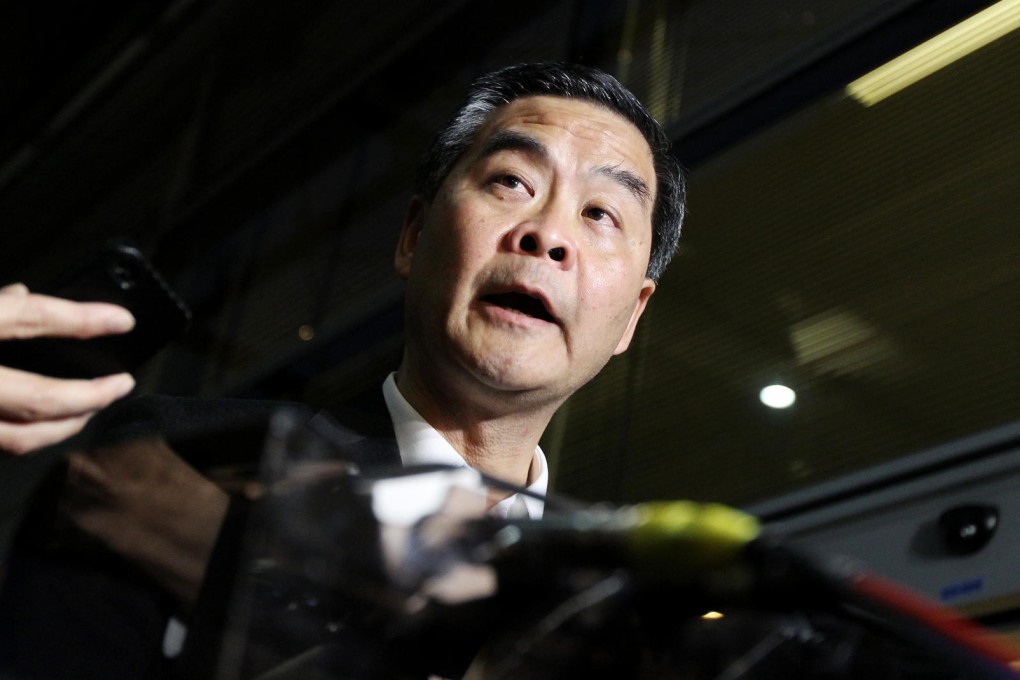No comment, says Leung as he returns home to hacking storm
Chief executive sticks to 'no comment' stance as he flies in from US to a political storm over hacking claims and what to do with leaker

Chief Executive Leung Chun-ying returned to Hong Kong last night to find himself at the centre of a brewing political storm over Edward Snowden's revelation of US cyber-hacking in the city and a heated debate over what the government should do with the whistle-blower.
Leung remained tight-lipped as he returned from his New York trip last night. "I am not commenting on individual cases," he said at the airport - the same response he gave seven times in an interview with Bloomberg television in the US
A government spokesman said "all cases will be handled in accordance with the laws of Hong Kong", adding that the administration had not received any reports of government departments being hacked.
Politicians and the public have expressed alarm at Snowden's claim that the US had launched hundreds of hacking operations targeting Hong Kong and the mainland since 2009, with targets allegedly including Chinese University, public officials, businesses and students.
Politicians from across the board, including the Beijing loyalist Democratic Alliance for the Betterment and Progress of Hong Kong, are urging the government to demand the US address the allegations and stop surveillance operations.
The Democratic Party suggested the Legislative Council invite Snowden to give evidence.
"I am interested to know how vulnerable our cyber systems are and I want to ask Mr Snowden questions and verify his claims," said party member James To Kun-sun, vice-chairman of Legco's security panel.
